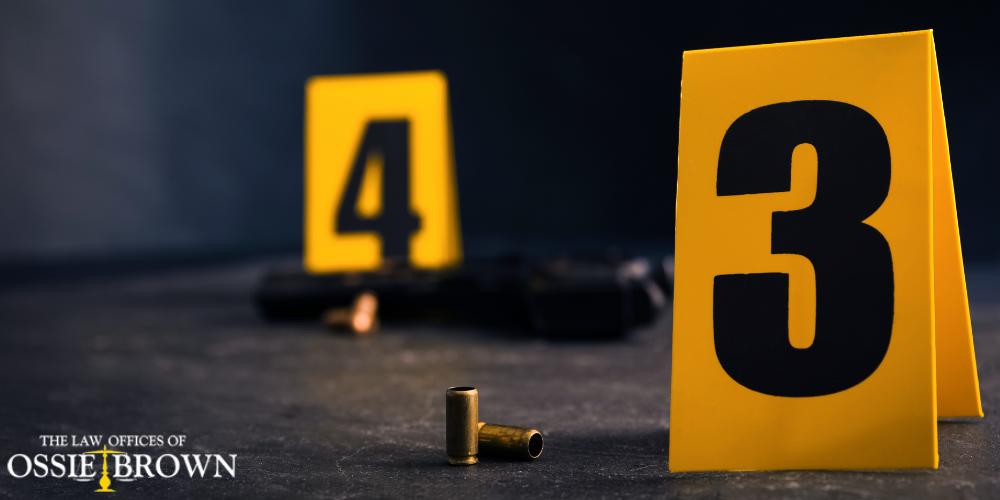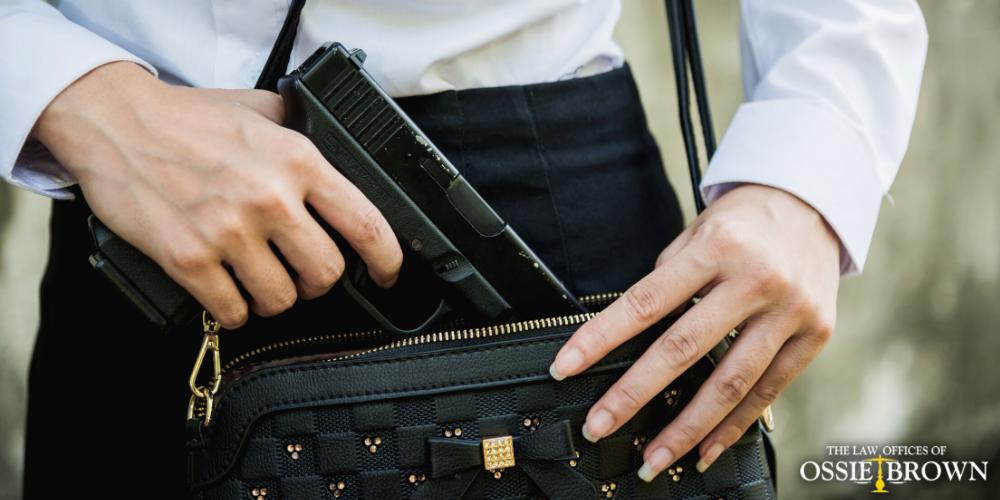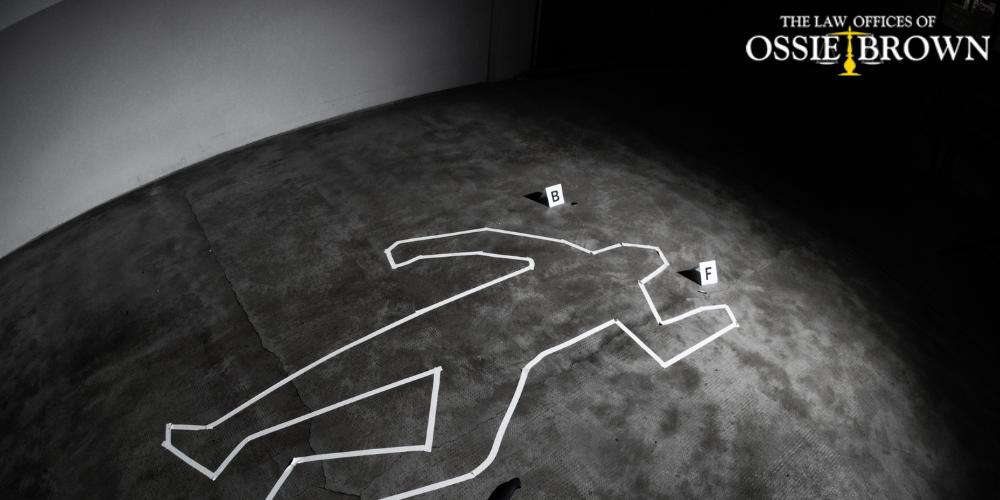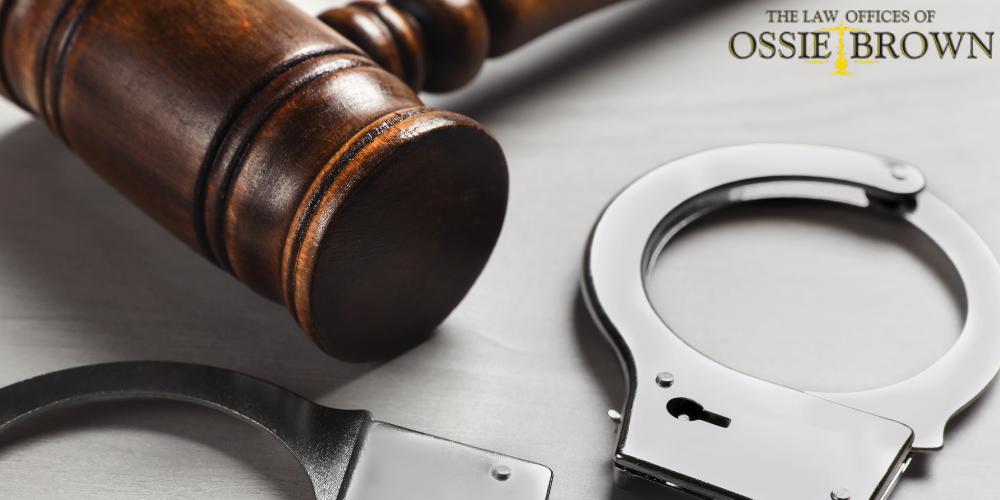Baton Rouge Justifiable Homicide Lawyer
Practice Areas
When someone attacks you with unlawful force, it’s very natural to try and protect yourself by fleeing or using self-defense. Unfortunately, self-defense may require the use of harmful or even deadly force, which can lead to homicide. In normal situations, ending a human life is one of the most serious crimes a person can commit, but what if the homicide occurs as a result of self-defense? This is what criminal defense attorneys refer to as justifiable homicide.
If you have been charged with homicide as a result of defending yourself, you may be able to avoid criminal punishment under Louisiana’s justifiable homicide law. The Baton Rouge criminal defense attorneys at The Law Offices of Ossie Brown can evaluate your case and defend your legal rights. Call us at 225-343-1111 to schedule a free initial consultation with one of our legal professionals.

What is Homicide?
Homicide is an umbrella term that covers any act or omission that results in the death of another human. This includes counts of first-degree murder or second-degree murder charges, manslaughter, negligent homicide, and vehicular homicide. If convicted of such an offense, a person could face an extensive prison sentence, fines, or both.
What is Justifiable Homicide in Baton Rouge?
Justifiable homicides occur when someone kills another person as a result of self-defense. If you have reason to believe someone is going to cause you great bodily harm, or they have already caused you substantial harm, you may be able to retaliate with deadly force.
Justifiable homicide is different from criminally negligent homicide or involuntary manslaughter. Involuntary manslaughter occurs when someone kills another human as a result of criminal negligence, or a gross failure to provide those around them with a reasonable amount of care.
Although the homicide may have been an accidental killing, the negligent person’s actions were unjustifiable. Because of this, manslaughter as a result of criminal negligence is treated as a criminal act and is punishable by imprisonment, fines, or both.
After being charged with manslaughter, a manslaughter defense lawyer in Baton Rouge can evaluate your situation and find the best defense to the charges. For example, if you kill someone in self-defense, you may not face any criminal charges or punishment at all.
What is Self-Defense?
Self-defense is the use of violent force to protect a person or their property from harm. For example, if someone tries to force their way into someone’s house, the homeowner has the right to retaliate with force.
Since anyone charged with a violent crime can claim they only committed the act in self-defense, Louisiana’s self-defense laws require a few key elements to be present in a given case. In order for self-defense to properly combat criminal charges, the person who practiced self-defense must have reasonably feared they were in imminent danger when they defended themselves.

Imminent Threat of Harm
In the context of self-defense, the term “imminent threat of harm” is the belief that serious bodily injury or death could occur to a person, or other people, as a result of someone else’s violence. If someone initiates an altercation, and they have a deadly weapon in their hand, the other person or people in the altercation may have reason to believe they are in imminent threat of harm.
The word “imminent” means ongoing, so in order for the threat of harm to be considered imminent, the threat has to be present at the time of the self-defense. For example, if someone attempts to rob a person at knifepoint, but suddenly drops the knife and flees the scene, the victim cannot attack the perpetrator, since the victim is not in any present danger.
Reasonable Fear of Harm
Reasonable fear of harm is another self-defense standard, which states that another person in the same situation as the victim would reasonably fear that they were in danger of suffering from serious bodily harm. If a reasonable person would have acted the same or similarly in the same situation, the victim may not be charged with a crime.
For example, if someone is robbed by another person with a realistic-looking toy gun, the victim may attack the criminal in an attempt to defend themselves. In this situation, if a reasonable person would have also thought they were in danger of serious injury or death, the court may decide that the victim was justified in attacking the perpetrator, despite the fact that they weren’t in serious danger.
Imperfect Self-Defense
Self-defense is usually defined as either “perfect” or “imperfect.” If someone uses perfect self-defense, then they used self-defense in a situation where they had reasonable fear of imminent harm. Imperfect self-defense often refers to any act of self-defense done as a result of an unreasonable fear of imminent harm.
For example, let’s say someone has PTSD from being attacked in the past. People with PTSD often have a heightened sense of arousal compared to the average person. Let’s say this person believes that someone walking behind them on a busy sidewalk is trying to attack them. In order to defend themselves, they may turn around and attack the pedestrian first. While the person with PTSD may have strongly believed they were in imminent danger, a reasonable person may not believe that they were in danger if they were in the same situation.
In perfect self-defense cases, those who commit self-defense are often acquitted of any criminal charges and receive no punishment. In an imperfect self-defense case, however, the person who committed imperfect self-defense may receive a reduced penalty for their actions.

Louisiana Justifiable Homicide Laws
In the context of justifiable homicide, self-defense that results in the death of the attacker is considered justified if the victim had a reasonable fear of imminent danger at the time of the killing. The two biggest components of Louisiana’s justifiable homicide law are the “castle doctrine” and the “stand your ground” law.
Castle Doctrine
In Louisiana, the castle doctrine refers to a homeowner’s right to protect their private property from unlawful entry. If the homeowner believes that the use of deadly force is the only way to protect their property, the homeowner may not be charged with homicide if they kill someone in self-defense.
Stand Your Ground Law
Under Louisiana’s justifiable homicide statute, the stand your ground law states that a victim (or potential victim) of a violent crime does not have to flee before acting in self-defense. This can only be used as an exception to criminal charges if, at the time of the altercation, the victim was not engaging in any criminal activity and they were somewhere that they had the right to be.
How Can a Criminal Defense Lawyer Prove Self-Defense in a Homicide Case?
A criminal defense attorney is crucial to any self-defense case, especially those that resulted in homicide. Attorneys with experience handling violent crimes will know what constitutes as perfect self-defense, as well as how to best prove self-defense in a given case. They will also be able to gather footage of the attack, contact eyewitnesses, and compile police reports surrounding the incident in order to develop a solid legal defense against their client’s charges.
This evidence can prove to the court that the person accused of homicide:
- Was attacked unprovoked;
- Was in imminent danger;
- Had a reason to believe they were in danger; and
- Used a reasonable amount of force, even if it was deadly force.
In a homicide case, it’s important to note that, while claiming self-defense can help a person accused of killing another person avoid criminal penalties, it may not help them avoid civil liability. Depending on the circumstances surrounding the homicide, a person who is acquitted of criminal charges may still be sued by the victim’s family in a wrongful death lawsuit.

Justifiable Homicide Defense in Baton Rouge, LA
Every person has a right to defend themselves, their property, and other people from harm, and sometimes, the only way to do that is through the use of deadly force. Louisiana’s justifiable homicide law allows individuals to reasonably defend themselves without the threat of receiving a murder charge.
Proving self-defense in a homicide case can be difficult, which is why it’s important for those accused of homicide to contact a skilled criminal defense law firm. We at The Law Offices of Ossie Brown are proud to provide the residents of Baton Rouge with expert legal counsel regarding their criminal cases. We will fight to help you receive a lesser charge or have your charges dropped entirely.
In addition to criminal defense work, we help our clients through the record expungement process, which allows them to have previous criminal activity removed from their records. Regardless of your criminal law needs, the skilled attorneys at The Law Offices of Ossie Brown are here to help. Call us at 225-343-1111 or contact us via our website to schedule a free consultation with a member of our team today.
Free Consultation
Let us review your case at no cost to you. We want to take the time to get to know you and understand your legal goals and objectives.
Why Our Clients Trust Us
Your Law Firm for a Lifetime.
The attorneys at The Law Offices of Ossie Brown are skilled in several practice areas and ready to discuss your case. Contact us today to schedule your free consultation.
